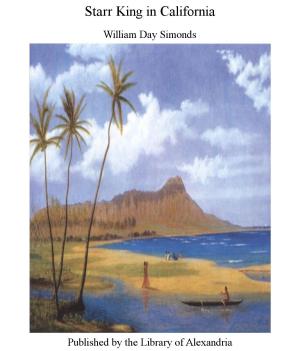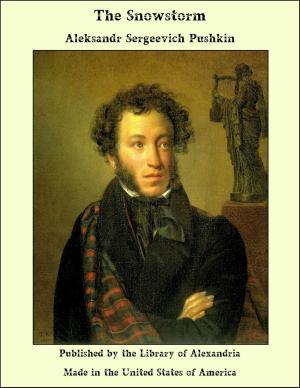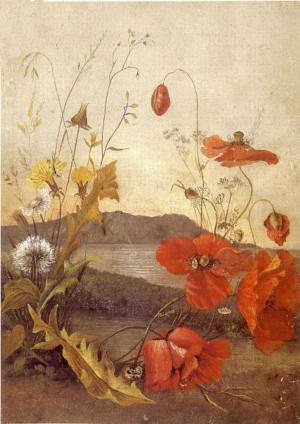| Author: | Louis Becke | ISBN: | 9781465551740 |
| Publisher: | Library of Alexandria | Publication: | March 8, 2015 |
| Imprint: | Language: | English |
| Author: | Louis Becke |
| ISBN: | 9781465551740 |
| Publisher: | Library of Alexandria |
| Publication: | March 8, 2015 |
| Imprint: | |
| Language: | English |
Funâfala is one of the many islands which encircle Funafuti lagoon with a belt of living green, and to Funâfala—"the island of the pandanus palm"—Senior and I had come with a party of natives from the village on the main island to spend a week's idleness. Fifty years ago, long before the first missionary ship sailed into the lagoon, five or six hundred people dwelt on Funâfala in peace and plenty—now it holds but their bones, for they were doomed to fade and vanish before the breath of the white man and his civilisation and "benefits," which to the brown people mean death, and as the years went by, the remnant of the people on Funâfala and the other islets betook themselves to the main island—after which the lagoon is named—for there the whale-ships and trading schooners came to anchor, and there they live to this day, smitten with disease and fated to disappear altogether within another thirty years, and be no more known to man except in the dry pages of a book written by some learned ethnologist. But twice every year the people of Funafuti betake themselves to Funâfala to gather the cocoa-nuts, which in the silent groves ripen and fall and lie undisturbed from month to month; then for a week or ten days, as the men husk the nuts, the women and children fish in the daytime among the pools and runnels of the inner reef, and at night with flaring torches of palm-leaf they stand amid the sweeping surf on the outer side of the narrow islet, and with net and spear fill their baskets with blue and yellow crayfish. Then when all the work is done, the canoes are filled with the husked cocoanuts, and with laughter and song—for they are yet a merry-hearted though vanishing people—they return to the village, and for another six months Funâfala is left to the ceaseless call of the restless sea upon the outer reef, and the hoarse cry of the soaring frigate birds. One afternoon Senior and myself, accompanied by a young, powerfully-built native named Suka, were returning to the temporary village on Funâfala—a collection of rude huts thatched with palm leaves—from a fishing excursion on the outer reef, when we were overtaken by a series of sudden squalls and downpours of rain. We were then walking along the weather shore of the island, which was strewn with loose slabs of coral stone, pure white in colour and giving forth a clear, resonant sound to the slightest disturbing movement On our right hand was a scrub of puka trees, which afforded no shelter from the torrential rain; on our left the ocean, whose huge, leaping billows crashed and thundered upon the black, shelving reef, and sent swirling waves of whitened foam up to our feet. For some minutes we continued to force our way against the storm, when Suka, who was leading, called out to us that a little distance on along the beach there was a cluster of pàpà (coral rocks), in the recesses of which we could obtain shelter. Even as he spoke the rain ceased for a space, and we saw, some hundreds of yards before us, the spot of which he had spoken—a number of jagged, tumbled-together coral boulders which some violent convulsion of the sea had torn away from the barrier reef and hurled upon the shore, where, in the course of years, kindly Nature had sent out a tender hand and covered them with a thick growth of a creeper peculiar to the low-lying atolls of the mid-Pacific, and hidden their rugged outlines under a mantle of vivid green
Funâfala is one of the many islands which encircle Funafuti lagoon with a belt of living green, and to Funâfala—"the island of the pandanus palm"—Senior and I had come with a party of natives from the village on the main island to spend a week's idleness. Fifty years ago, long before the first missionary ship sailed into the lagoon, five or six hundred people dwelt on Funâfala in peace and plenty—now it holds but their bones, for they were doomed to fade and vanish before the breath of the white man and his civilisation and "benefits," which to the brown people mean death, and as the years went by, the remnant of the people on Funâfala and the other islets betook themselves to the main island—after which the lagoon is named—for there the whale-ships and trading schooners came to anchor, and there they live to this day, smitten with disease and fated to disappear altogether within another thirty years, and be no more known to man except in the dry pages of a book written by some learned ethnologist. But twice every year the people of Funafuti betake themselves to Funâfala to gather the cocoa-nuts, which in the silent groves ripen and fall and lie undisturbed from month to month; then for a week or ten days, as the men husk the nuts, the women and children fish in the daytime among the pools and runnels of the inner reef, and at night with flaring torches of palm-leaf they stand amid the sweeping surf on the outer side of the narrow islet, and with net and spear fill their baskets with blue and yellow crayfish. Then when all the work is done, the canoes are filled with the husked cocoanuts, and with laughter and song—for they are yet a merry-hearted though vanishing people—they return to the village, and for another six months Funâfala is left to the ceaseless call of the restless sea upon the outer reef, and the hoarse cry of the soaring frigate birds. One afternoon Senior and myself, accompanied by a young, powerfully-built native named Suka, were returning to the temporary village on Funâfala—a collection of rude huts thatched with palm leaves—from a fishing excursion on the outer reef, when we were overtaken by a series of sudden squalls and downpours of rain. We were then walking along the weather shore of the island, which was strewn with loose slabs of coral stone, pure white in colour and giving forth a clear, resonant sound to the slightest disturbing movement On our right hand was a scrub of puka trees, which afforded no shelter from the torrential rain; on our left the ocean, whose huge, leaping billows crashed and thundered upon the black, shelving reef, and sent swirling waves of whitened foam up to our feet. For some minutes we continued to force our way against the storm, when Suka, who was leading, called out to us that a little distance on along the beach there was a cluster of pàpà (coral rocks), in the recesses of which we could obtain shelter. Even as he spoke the rain ceased for a space, and we saw, some hundreds of yards before us, the spot of which he had spoken—a number of jagged, tumbled-together coral boulders which some violent convulsion of the sea had torn away from the barrier reef and hurled upon the shore, where, in the course of years, kindly Nature had sent out a tender hand and covered them with a thick growth of a creeper peculiar to the low-lying atolls of the mid-Pacific, and hidden their rugged outlines under a mantle of vivid green















